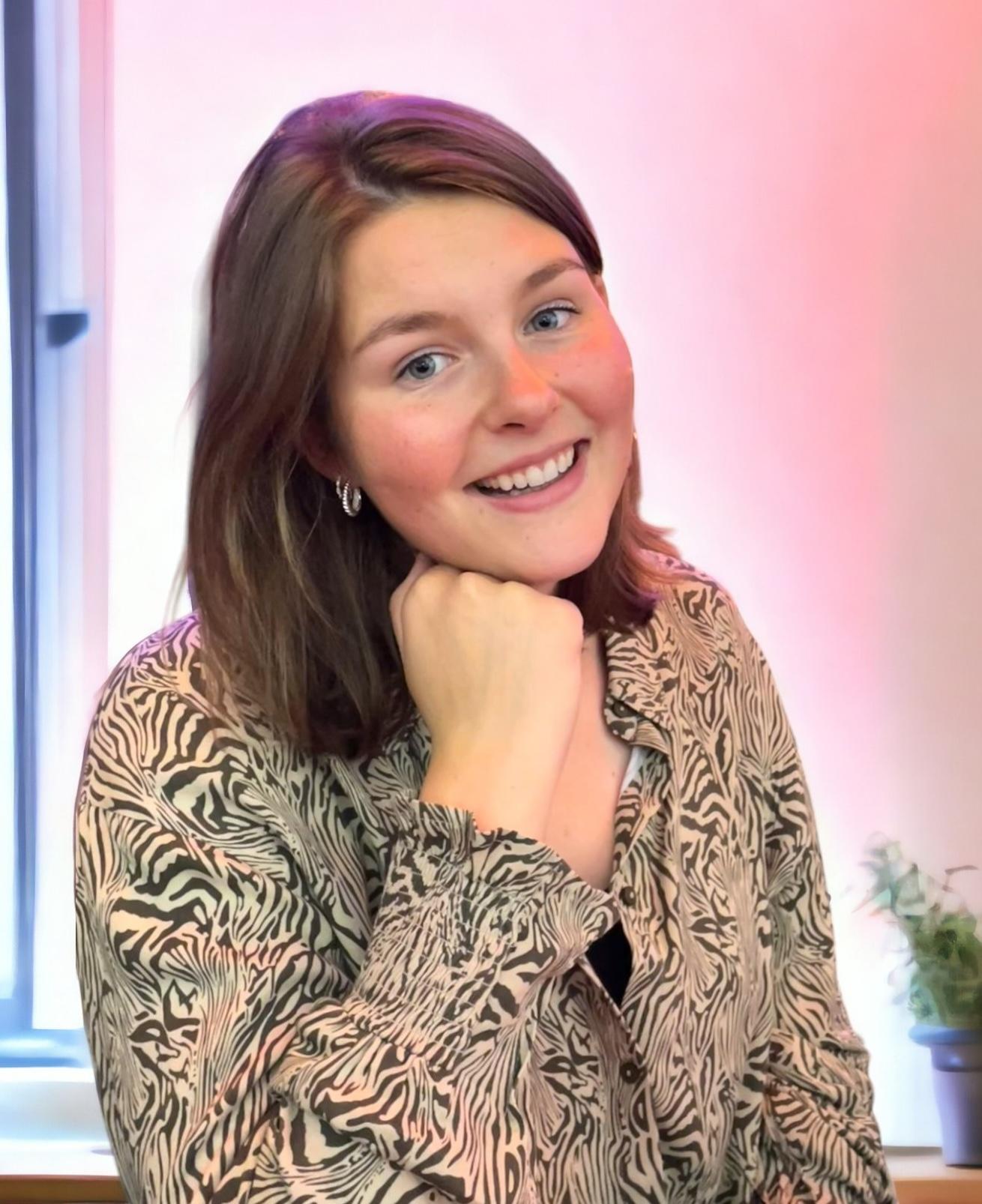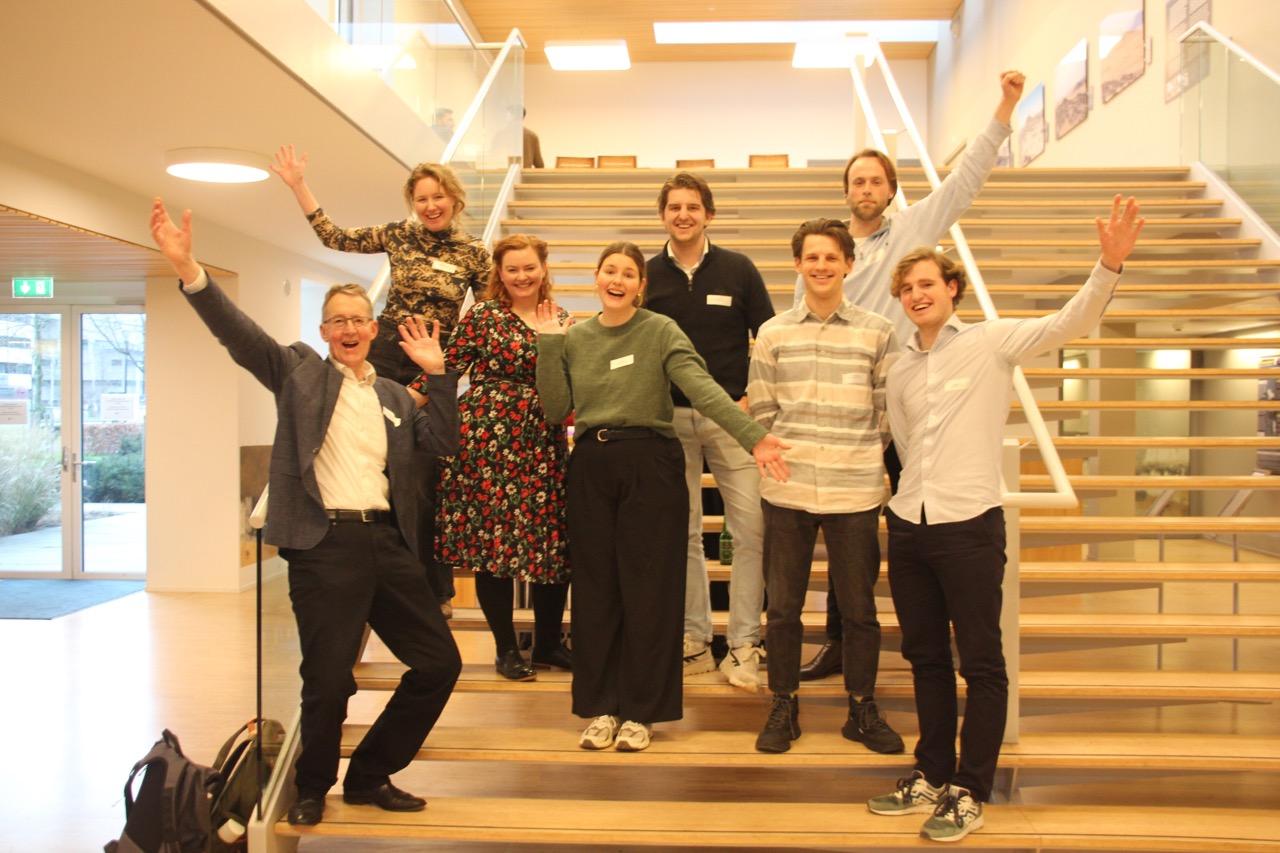Students from our Thesis Labs share their experiences in Lablogs. What did they discover so far in their Lab? This time Vera Vlugter, master’s student in Management of Innovation and participant of the Lab 'Changing Megasystems'. Vera: "During a site visit I heard about the challenges of the Port of Rotterdam firsthand, and this has helped me to better understand the complexities involved in the processes of running a port complex of such an enormous size, a ‘mega system as we call it’. Read Vera's Lablog:
"Last week, we visited the Port of Rotterdam Authority in the impressive World Port Center. Here Janneke Pors and Marielle Chartier told us all about the Port of Rotterdam's goals for achieving a circular carbon transition. Els Boesveld, from the Province of South Holland, presented the Province's goals for transitioning to circularity. There are many challenges of implementing changes within a port complex of such an incredibly large scale. Hearing about those firsthand, enabled us to better grasp the complexities involved in the processes of running a port complex of such an enormous size, a ‘mega system as we call it’.

Name: Vera Vlugter
Age: 27
Study: Master’s student in Management of Innovation
University: Erasmus University Rotterdam
Thesis lab: Changing Mega Systems
Lifegoal: I want to make the future more sustainable, especially in my hometown and favorite city, Rotterdam, even though my contribution might be small.
Visit Fieldlab Industrial Electrification (FLIE)
We gained a new understanding of the huge task provided to us. But before getting overwhelmed too much, a water taxi brought us to Platform Zero, for an exciting presentation about accelerating Rotterdam's industry's electrification, by Elsa van der Zwan. Elsa showed us the Fieldlab Industrial Electrification, FLIE. This lab is a smaller scale but very realistic simulator of the mega-system of the Rotterdam port. Therefore, it offers a unique opportunity for companies in the industry, as well as startups, to test their innovative ideas without taking on too much financial or logistical risk. Seeing how vital collaboration and innovation are to making the circular economy work was eye-opening and inspiring
The Changing Mega Systems Thesis Lab of this year consists of nine Delft, Leiden, and Rotterdam students. After everything we saw and heard today, we discussed our different topic approaches to the presented problems and one thing stood out: we’re all clearly working towards one common goal: a small, practical, step towards a more circular carbon industry cluster in South Holland.
This is exactly why I started this program. During my bachelor’s in Food Technology, I gained much practical experience, but I very much missed this during my Master’s program. The LDE Thesis Lab allows me to be part of a collaborative effort to address pressing environmental issues. The transition to a circular carbon industry cluster is a chance to make a tangible impact in my community. Additionally, the practical focus of the Lab allows me to apply the theoretical concepts I learned in my studies to real-world scenarios.
Scale up plastic production
My thesis is about using the mass balance approach to scale up circular plastics production in the Port of Rotterdam. For the Port of Rotterdam Authority, I want to find out how this approach can help producers work together better and promote sustainable practices in plastic recycling. I've been reading a lot and talking to experts to get some great insights into the challenges and opportunities of circular plastics production. Working with the Port of Rotterdam Authority has allowed me to experience transitioning to a circular economy model. Talking to participants from different disciplines has given me a deeper understanding of the complex relationship between policy, industry, and sustainability. "

Participating in the Lab has provided me a platform to delve into real-world issues and apply my academic knowledge to tackle them. Working alongside individuals from diverse backgrounds has allowed me to consider different angles when approaching challenges. I am eager to continue researching and exploring potential solutions to promote circular plastics production. Moreover, I am keen to further engage with industry partners and policymakers to understand the broader implications of transitioning to a circular carbon industry cluster. I am really excited about the next months of research and excursions!
